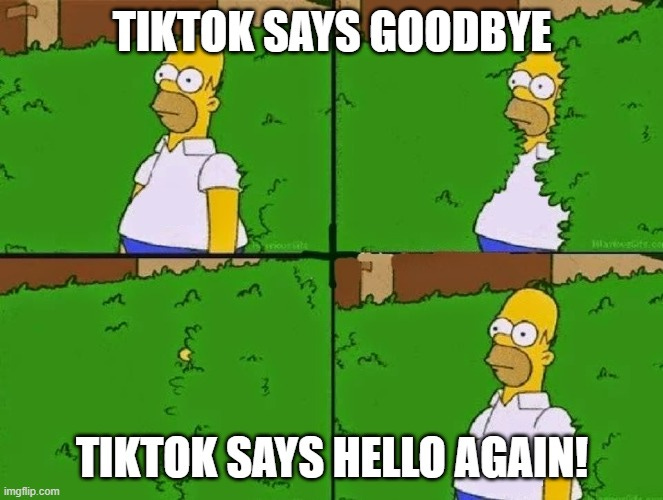Marketing Dojo #95: ⚔️ New Frenemies in Retail 🤝
Amazon's ad tech offering, Google scored below 90%, hyper-personalized creep and more.
What happens when marketing teams have a large budget but zero creative freedom?
Walmart just gave us a masterclass with their new logo. You know, the kind where you spend millions to trace the old one.
For what it's worth, Walmart provided entertainment during an otherwise confusing week filled with TikTok’s disappearing and reappearing drama.
Jokes aside, here's what we will cover in the 95th issue of the Marketing Dojo:
🔍 Even The Search God Bleeds
💡 Amazon is selling its tech
👀 Hyper-personalized creep
And some more.
Haven't subscribed yet? Consider hitting that subscribe button. Every Wednesday, I distil the marketing world's chaos into bite-sized, scroll-friendly insights.
And to my existing subscribers - your support keeps this newsletter growing. Thank you for being part of this journey.
Even the Search God Bleeds
Google is search. Search is Google.
With over 90% market share, Google's dominance in search has been absolute. But I admit, Google searches aren't what they used to be. We've all been there - wading through sponsored links and dodging SEO-stuffed content just to find a decent answer.
Competition is heating up: Microsoft's AI-powered Bing is holding steady with 4% market share, while AI-first challengers like Perplexity and ChatGPT are entering the arena. And let's not forget Gen Z, who increasingly turns to TikTok as their search engine of choice.
For the first time in 10 years, Google's search share has fallen below 90%.
As per Statcounter, the share of search by Google dipped to 89.34% in October, 89.99% in November, and 89.73% in December.
Statcounter has not yet included new search engines like ChatGPT or Perplexity. The true overall share of Google in search might see some downward revision in 2025 since ChatGPT search is expected to capture 1% of the total search market.
Sure, these aren't exactly panic-button numbers.
The dip isn't huge—Google's advertising revenue remains untouched. But this three-month trend might be the first sign of weakness in the search giant's once-impenetrable armour.
Amazon’s Power Play: Unite and Profit
Last week at CES, Amazon announced a checkmate move that will significantly grow its ad business and challenge the Google-Meta duopoly.
Amazon will start selling its ad tech to other retailers.
They're opening up their ad tech - the same technology that's been printing money on Amazon.com - to other retail platforms.
Early adopters like iHerb and the Asian party supply store Wee! are already on board.
In this new setup, retailers like iHerb will retain control over the number and format of ads on their platforms. Meanwhile, Amazon's ad service—currently in beta—will enable these platforms to serve contextually relevant ads using Amazon's finely-tuned algorithms.
The move opens up ads across this new network for advertisers that spend money on Amazon.
Every retailer that joins this network becomes another piece on Amazon's chessboard. Advertisers who already spend on Amazon can now reach customers across this entire network. Meanwhile, Amazon gets to peek at how shoppers behave everywhere their tech goes.
Building your own retail media network is a massive undertaking - Amazon's offering them a shortcut that's too tempting to ignore.
But here's the catch: when your biggest competitor becomes your new best friend, the friendship usually comes with fine print.
Hyper-Personalized Privacy Invasion.
Imagine this: you're scrolling Instagram and seeing an ad for a skincare product.
The model? It's you.😲
Well, sort of.
It's an AI-generated version of you.
That's not science fiction—it's under testing right now.
Recently, some Instagram users who edited their selfies with Meta's AI tools discovered their AI avatars popping up in ads.
Last year, Snapchat's "My AI Selfie" feature raised eyebrows when it revealed that user-generated AI images could appear in advertising.
Hyper-personalization is transforming from "[Name]" in an email subject line to seeing yourself in a product ad.
As a consumer, I'm concerned about the implications.
Where's the line between personalization and privacy? Should we be compensated when our AI twins become brand ambassadors?
What's your take on this? Would seeing your AI-generated self in an ad excite or creep you out?
Short Stuff:
Early trend indicates that Reddit is experiencing a small but visible drop of traffic from Google (Google giveth, Google taketh).
Amazon finally launched its online car shop. Hyundai is its first partner. (Will you buy a car online?)
EU vows to “energetically” pursue cases against X under its DSA rulebook (More troubles for X incoming).
Meta announces a new Capcut rival, Edits. (Never the one to stop copying).
That’s a wrap on this week. Thank you for your time and attention. If you liked this week’s newsletter or found something interesting, please give me a like ❤️ or drop a comment🗨️. Your support helps drive the newsletter's discoverability.
I will see you in your inbox next Wednesday.
Regards,








